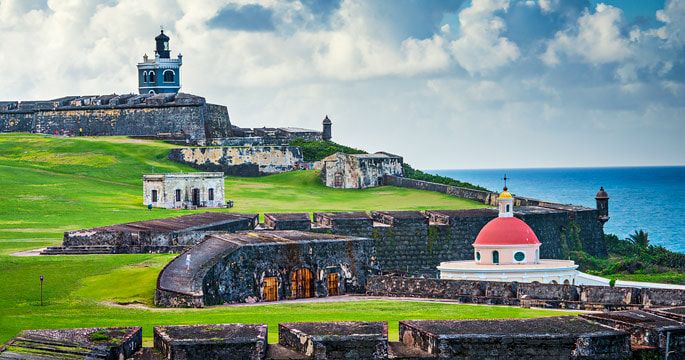Puerto Rico
Puerto Rico is an unincorporated territory of the United States located in the northeast Caribbean Sea, approximately 1,000 miles southeast of Miami, Florida. The commonwealth is actually an archipelago among the Greater Antilles that includes the main island, Puerto Rico, and several smaller islands such as Mona, Culebra, and Vieques. Puerto Rico's unique heritage, culture, and natural beauty has made it a top tourism destination. Originally populated by the indigenous Taino people, Puerto Rico was colonized by Spain following the arrival of Christopher Columbus in 1493.
Puerto Rico remained a Spanish colony for more than four centuries until the United States defeated Spain in the Spanish-American War in 1898 and occupied the island. Puerto Ricans have been citizens of the United States since 1917, and enjoy freedom of movement between the island and the mainland. As it is not a state, Puerto Rico does not have a vote in the United States Congress, which governs the territory with full jurisdiction under the Puerto Rico Federal Relations Act of 1950. However, Puerto Rico does have one non-voting member of the House called a Resident Commissioner.
As residents of a U.S. territory, American citizens in Puerto Rico are disenfranchised at the national level and do not vote for president and vice president of the United States, nor pay federal income tax on Puerto Rican income. Like other territories and the District of Columbia, Puerto Rico does not have U.S. senators. Congress approved a local constitution in 1952, allowing U.S. citizens on the territory to elect a governor. Puerto Rico's future political status has consistently been a matter of significant debate. (Source: Wikipedia.)
Puerto Rico remained a Spanish colony for more than four centuries until the United States defeated Spain in the Spanish-American War in 1898 and occupied the island. Puerto Ricans have been citizens of the United States since 1917, and enjoy freedom of movement between the island and the mainland. As it is not a state, Puerto Rico does not have a vote in the United States Congress, which governs the territory with full jurisdiction under the Puerto Rico Federal Relations Act of 1950. However, Puerto Rico does have one non-voting member of the House called a Resident Commissioner.
As residents of a U.S. territory, American citizens in Puerto Rico are disenfranchised at the national level and do not vote for president and vice president of the United States, nor pay federal income tax on Puerto Rican income. Like other territories and the District of Columbia, Puerto Rico does not have U.S. senators. Congress approved a local constitution in 1952, allowing U.S. citizens on the territory to elect a governor. Puerto Rico's future political status has consistently been a matter of significant debate. (Source: Wikipedia.)

